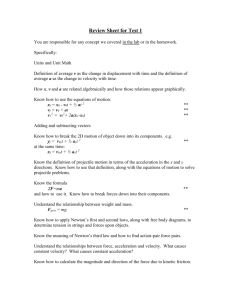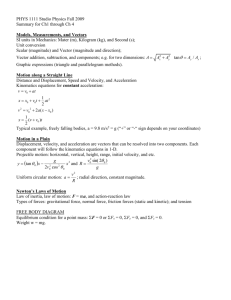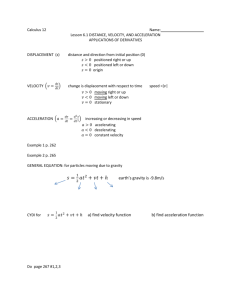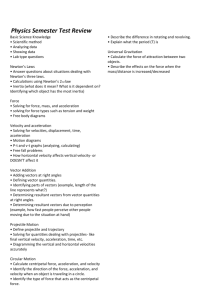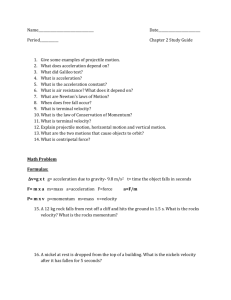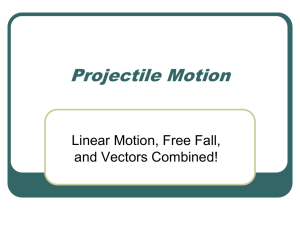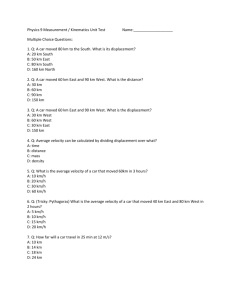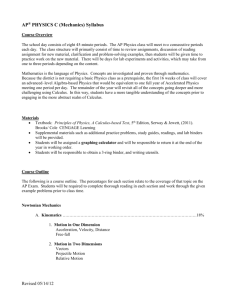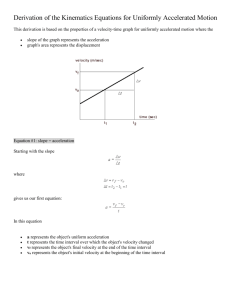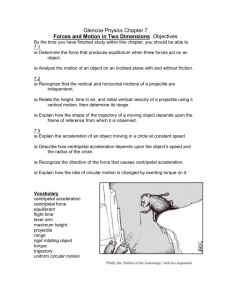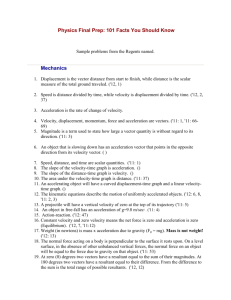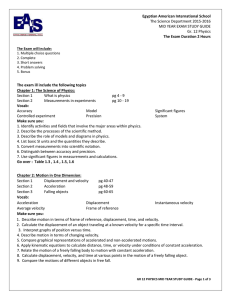Physics Midterm Review - Southington Public Schools
advertisement
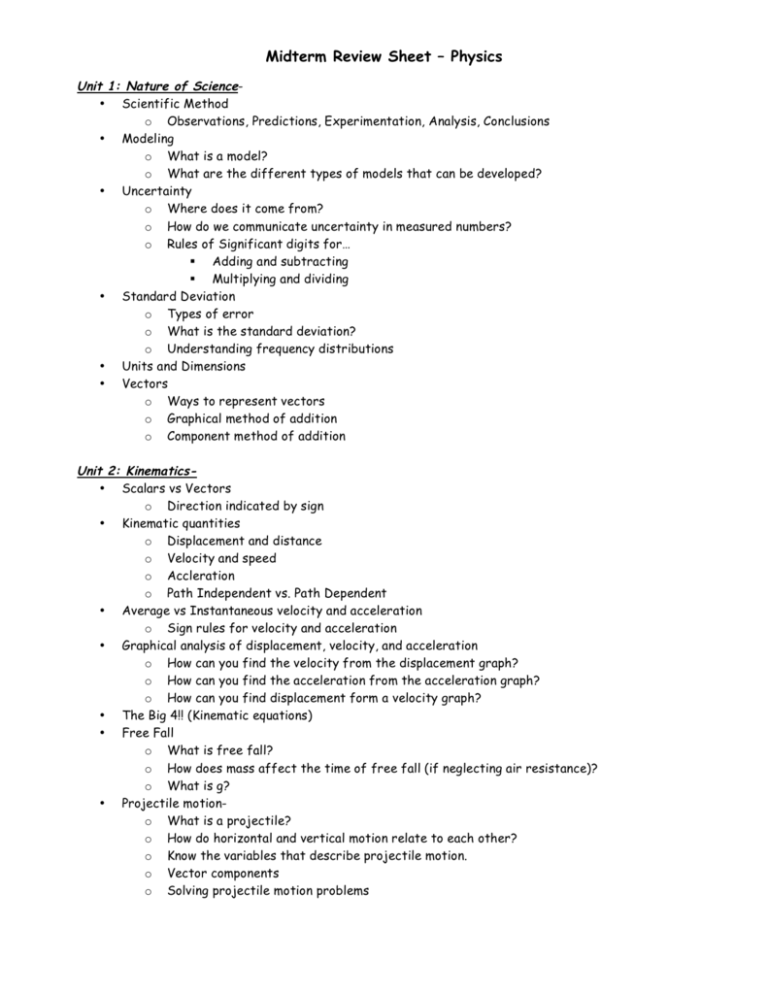
Midterm Review Sheet – Physics Unit 1: Nature of Science• Scientific Method o Observations, Predictions, Experimentation, Analysis, Conclusions • Modeling o What is a model? o What are the different types of models that can be developed? • Uncertainty o Where does it come from? o How do we communicate uncertainty in measured numbers? o Rules of Significant digits for… Adding and subtracting Multiplying and dividing • Standard Deviation o Types of error o What is the standard deviation? o Understanding frequency distributions • Units and Dimensions • Vectors o Ways to represent vectors o Graphical method of addition o Component method of addition Unit 2: Kinematics• Scalars vs Vectors o Direction indicated by sign • Kinematic quantities o Displacement and distance o Velocity and speed o Accleration o Path Independent vs. Path Dependent • Average vs Instantaneous velocity and acceleration o Sign rules for velocity and acceleration • Graphical analysis of displacement, velocity, and acceleration o How can you find the velocity from the displacement graph? o How can you find the acceleration from the acceleration graph? o How can you find displacement form a velocity graph? • The Big 4!! (Kinematic equations) • Free Fall o What is free fall? o How does mass affect the time of free fall (if neglecting air resistance)? o What is g? • Projectile motiono What is a projectile? o How do horizontal and vertical motion relate to each other? o Know the variables that describe projectile motion. o Vector components o Solving projectile motion problems Midterm Review Sheet – Physics Unit 3: Dynamics• Forces o Types/categories of forces o Free-body diagrams • Newton’s laws of motion o First Law What is inertia? How is it measured? o Second Law o Third Law Be able to identify action-reaction pairs. • Mass and weight o Differentiate between mass, weight, and apparent weight o Elevator problem • Problems/Multi-body Problems o Be able to analyze, set-up, and solve given problems. • Friction o What is friction? o What are the two types of friction? o How is friction related to the normal force? The contact surfaces? Unit 4: Work and Energy• Work and Energy o Types of energy • Work-energy theorem • Potential energy o Gravitational o Spring (elastic) • Conservation of Mechanical Energy • Conservation of Energy Unit 5: Impulse and Momentum• What is momentum? • What is impulse? • Impulse-momentum theorem • Conservation of Momentum • Collisions o Elastic vs. inelastic Unit 6: Circular Motion• Centripetal acceleration o Magnitude and direction • Centripetal force o Magnitude and direction • Law of Universal Gravitation
